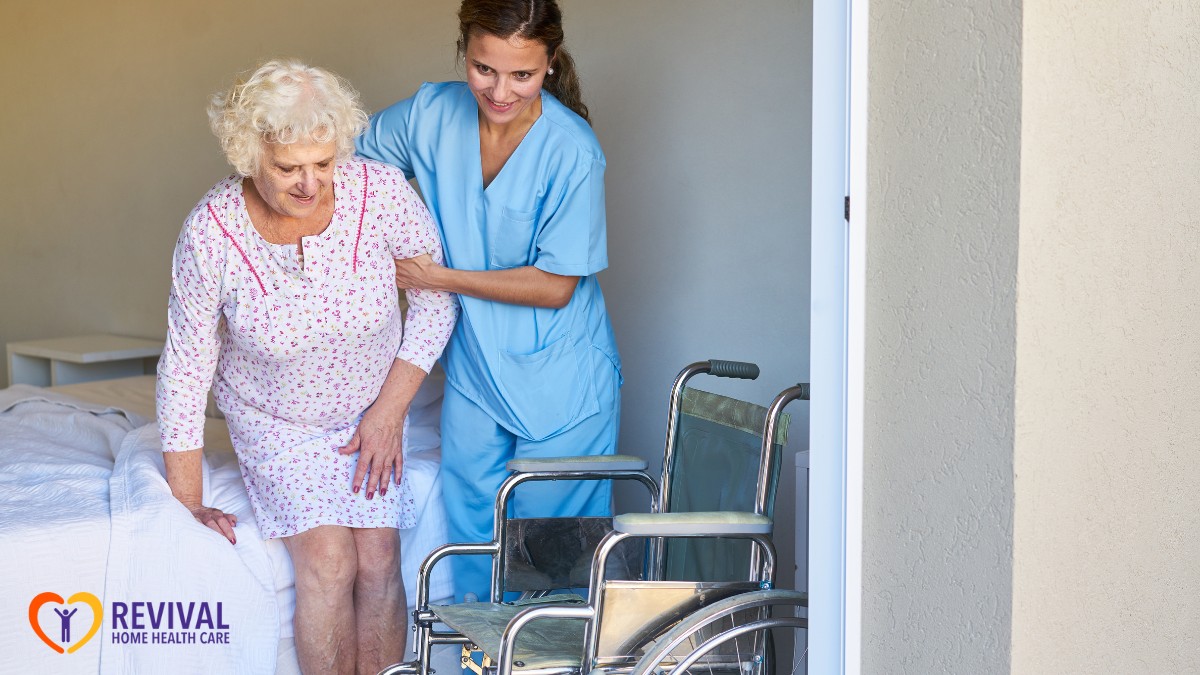Key Points:
- Home health aides and nurses both provide in-home care, but their training, responsibilities, and scope of work differ significantly.
- Nurses handle medical tasks like administering medication and managing care plans, while aides assist with personal care and daily living activities.
- Choosing between a nurse and a home health aide depends on the level of care needed—both can work together as part of a care team.
When someone you love needs help at home—whether due to age, illness, or disability—understanding your care options can feel overwhelming. One of the most common questions families ask is: What’s the difference between a home health aide and a nurse?
This is a critical distinction, especially when trying to balance quality care with emotional and financial well-being. Choosing the right type of support could mean the difference between comfort and confusion, independence and unnecessary stress.
In this article, we’ll walk you through the differences between home health aides and nurses, explain when each one is needed, and help you feel more confident in making the right decision for your family.

Understanding Home-Based Care Roles
Not all in-home care professionals do the same job. Both home health aides (HHAs) and nurses play valuable roles, but they serve different purposes.
What Is a Home Health Aide?
A home health aide is a trained caregiver who helps individuals with personal care and daily living activities. These tasks include:
- Bathing, grooming, and hygiene assistance
- Meal preparation and feeding help
- Light housekeeping
- Monitoring for changes in condition
- Mobility assistance and transfers
- Medication reminders (but not administration)
Most HHAs work under the supervision of a nurse or a care manager. They are essential for people who need help with daily routines but don’t require ongoing medical attention.
What Is a Nurse in Home Care?
In homecare, “nurse” typically refers to a Registered Nurse (RN) or a Licensed Practical Nurse (LPN). These professionals are licensed by the state and have clinical training. Their role includes:
- Administering medications and injections
- Managing wound care
- Monitoring vital signs
- Performing assessments
- Creating and managing care plans
- Operating medical equipment
Nurses are the ones who handle the medical side of care. If your loved one is recovering from surgery or managing a chronic condition, a nurse is likely required.

Education and Licensing Differences
Understanding the education and licensing requirements of home health aides and nurses can help you choose the right care provider based on their qualifications, training, and scope of responsibilities.
Training Requirements for Home Health Aides
Home health aides typically complete a state-approved training program, which may range from 75 to 120 hours, depending on the state. They are certified after demonstrating competency in key caregiving skills.
They do not hold a license like a nurse would, and their training focuses more on safety, personal care, and supportive tasks.
Credentials for Nurses
Registered Nurses (RNs) must have an associate’s or bachelor’s degree in nursing and pass the NCLEX-RN exam. Licensed Practical Nurses (LPNs) require a certificate or diploma in practical nursing and must pass the NCLEX-PN.
Both RNs and LPNs are regulated by state boards and have a much broader scope of practice than HHAs.
Scope of Practice: What Each Can and Can’t Do
When choosing between a home health aide and a nurse, it’s essential to understand their scope of practice—what each caregiver is legally and professionally allowed to do in home care settings.
Home Health Aide Scope of Practice
HHAs cannot provide medical treatment. They are there to support clients with everyday tasks and offer companionship. However, their role is deeply valuable—many clients develop trusting, long-term relationships with their aides.
HHAs often work under the direction of a nurse who provides a care plan. They act as the “eyes and ears,” reporting any concerns or changes in condition.
Nurse Scope of Practice
Nurses can perform clinical interventions. If a patient needs injections, complex wound care, catheter changes, or health assessments, a nurse is required. They can also make medical decisions and adjust care plans in coordination with a doctor.
Choosing the Right Care for Your Loved One
Deciding between a home health aide and a nurse depends on your loved one’s specific needs. Understanding the level of care required can help ensure they receive the right support at home.
When Is a Home Health Aide Enough?
A home health aide is a great choice when your loved one:
- Needs help with personal care, but is otherwise stable
- Wants to remain independent at home
- Needs companionship and daily support
- Doesn’t require ongoing medical treatments
This is especially common in aging-in-place situations, where older adults want to stay in their homes but need a helping hand.
When a Nurse Is Needed
You’ll need a nurse if your loved one:
- Has wounds that require dressing and monitoring
- Is recovering from a recent surgery
- Needs injections or IV therapy at home
- Has a medical condition that needs close observation
In many cases, families benefit from a combination of both—with a nurse overseeing medical needs and an aide handling daily care.
Costs and Insurance Coverage
The cost of in-home care varies depending on services needed and location.
Home Health Aide Costs
HHAs are typically less expensive than nurses. Their services may be covered by:
- Medicaid (especially through managed long-term care programs)
- Long-term care insurance
- Private pay
Nurse Home Visit Costs
Nursing visits are more costly due to their advanced training. However, they are more likely to be covered by Medicare, especially if deemed medically necessary and prescribed by a doctor.
Emotional Factors: Building Trust in Care
Beyond clinical differences, it’s important to recognize that care is personal. Home health aides often spend more time with clients and become part of their daily routine, providing emotional comfort as well as physical support.
Nurses, though often present less frequently, provide essential reassurance that medical needs are being managed properly. The most successful homecare experiences are often those where families clearly understand the roles of each caregiver, creating a balanced and respectful care environment.
Don’t Make the Decision Alone
Choosing between a nurse and a home health aide doesn’t have to fall solely on your shoulders. Consult with your loved one’s physician, reach out to a care coordinator, or speak with a homecare agency to evaluate needs.
Many agencies offer assessments to help determine what kind of care is required—and how to combine roles if necessary.
Choose the Right Home Health Aide in New York
If you’re looking for compassionate and dependable in-home support, Revival Home Health Care is here to help. Our home health aide services in New York are tailored to meet the daily needs of clients who want to live safely and comfortably at home.
Our caregivers are qualified, professionally certified, and thoughtfully paired with your loved one to meet their unique needs—offering support from daily personal tasks to friendly companionship. Whether you’re beginning care or updating an existing plan, we’re here to support you at every stage.
Reach out today to learn how Revival Home Health Care can support your family with trusted, professional home health aides in New York.


 75 Vanderbilt Ave Staten Island, NY 10304
75 Vanderbilt Ave Staten Island, NY 10304 info@revivalhhc.org
info@revivalhhc.org 718.629.1000
718.629.1000